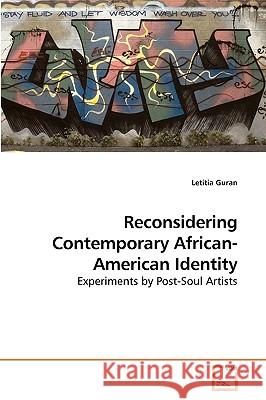Reconsidering Contemporary African-American Identity » książka
Reconsidering Contemporary African-American Identity
ISBN-13: 9783639236903 / Angielski / Miękka / 2010 / 60 str.
This book offers a fresh perspective on the Post- Soul aesthetic and its role in re-writing African- American identity-- by focusing explicitly on three contemporary authors: Spike Lee, Toure, and Suzan- Lori Parks. My premise is that Post-Soul art is a direct result of the sweeping changes brought by the post-Civil Rights era in the African-American mentality, which inaugurated a new age in African- American art. Thus, the Post-Soul generation represents blackness as diverse, free to define itself in its own terms; they promote a critical take on black nationalism, and new perspectives on slavery. Most of the Post-Soul artists consider themselves "cultural mulattos," people able to navigate equally in the white and the black worlds, artists who programmatically explore the boundaries of blackness, and use non-traditional black cultural influences in their art works. Determined to (re) Signify on both black and white cultural references, Post-Soul artists challenge both stereotypical images of African-American promoted by mainstream culture and, the sometimes, sentimentalized iconic figureheads of their own community."
This book offers a fresh perspective on the Post- Soul aesthetic and its role in re-writing African- American identity-- by focusing explicitly on three contemporary authors: Spike Lee, Touré, and Suzan- Lori Parks. My premise is that Post-Soul art is a direct result of the sweeping changes brought by the post-Civil Rights era in the African-American mentality, which inaugurated a new age in African- American art. Thus, the Post-Soul generation represents blackness as diverse, free to define itself in its own terms; they promote a critical take on black nationalism, and new perspectives on slavery. Most of the Post-Soul artists consider themselves "cultural mulattos," people able to navigate equally in the white and the black worlds, artists who programmatically explore the boundaries of blackness, and use non-traditional black cultural influences in their art works. Determined to (re) Signify on both black and white cultural references, Post-Soul artists challenge both stereotypical images of African-American promoted by mainstream culture and, the sometimes, sentimentalized iconic figureheads of their own community.











